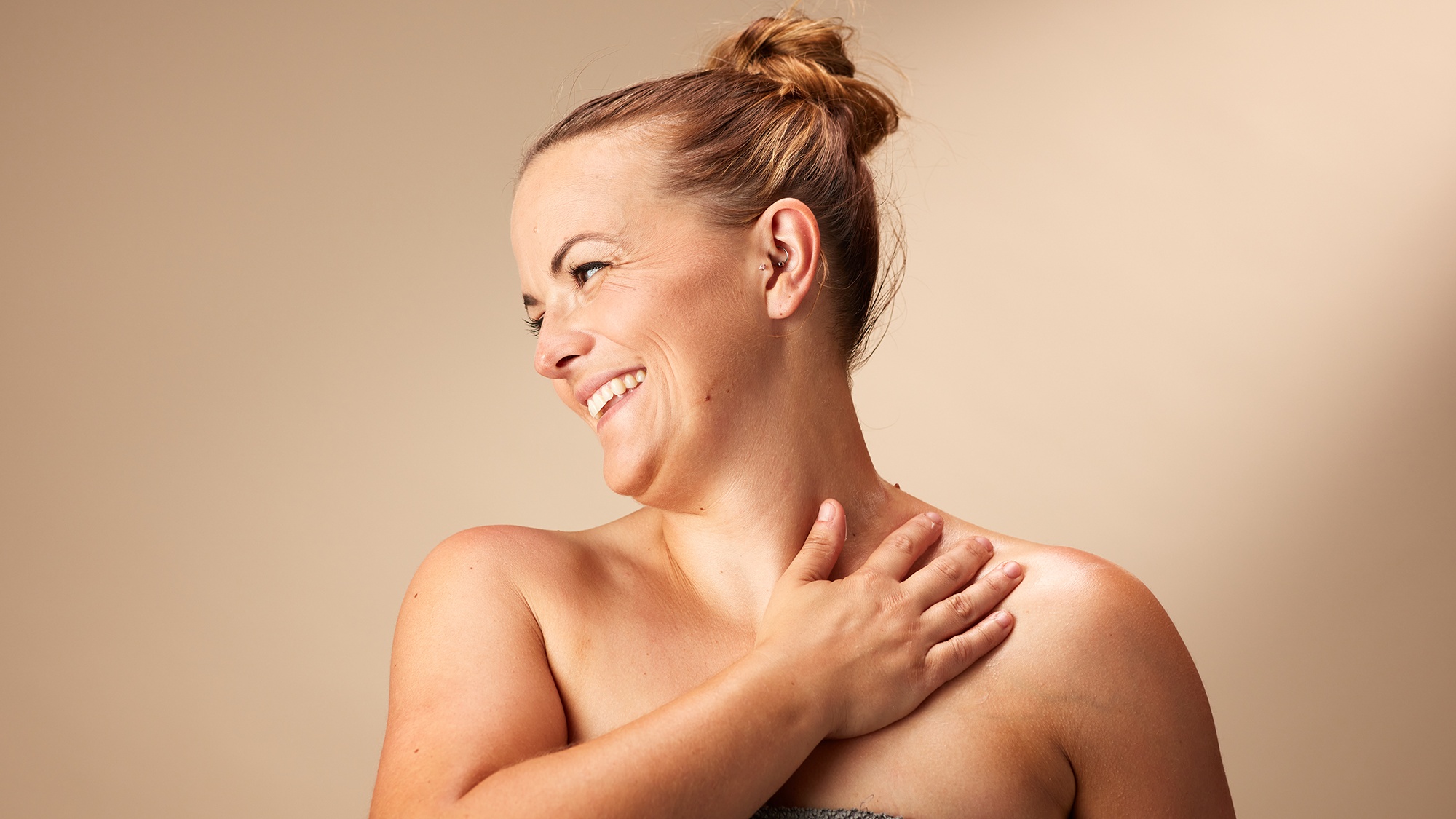What is your microbiome?
Your microbiome is a unique community of bacteria, fungi, viruses and yeast that live on your skin. Each square centimetre contains approximately one million microorganisms which form an important part of your skin barrier. They compete for food and resources and make it harder for pathogens to move in.
Your skin’s microbiome performs an important immunological function straight from birth. Babies born vaginally inherit their microbiome from their mother as they pass through the birth canal, where it forms a quick defence against pathogens such as MRSA. Babies born by C-section inherit theirs from contact with doctors, the hospital environment and skin-to-skin contact with their mother after delivery. As we grow, biological sex, age, lifestyle, environment and ethnicity also inform the microbial differences that make us unique.
Healthy skin has a diverse microbiome and an intact skin barrier that is able to retain water and nutrients but form a barrier against pathogens. Skin diseases, such as atopic dermatitis and acne, are associated with an imbalanced microbiome (known as dysbiosis) and an impaired skin barrier. When we try to improve the appearance or texture of our skin, we can alter its conditions which can in turn disrupt our microbiome. That’s why cosmetic desires should be balanced with an understanding that our skin is an ecosystem. Treating your complexion with kindness allows it to do its job of regulating your immune system and protecting you from external stressors like UVA rays, pollution and oxidative damage.
Modern lifestyles have drastically impacted the health of our microbiome. Exposure to synthetics like detergents, preservatives and cosmetics is depleting our microbiome, leading to skin conditions that are rarely seen in indigenous communities. Children leading urban lifestyles are also lacking important early exposures to the microorganisms found in soil and water that helps develop a healthy immune system.
Fresh is best
Lush co-founder and product inventor Helen Ambrosen is passionate about making fresh, effective skincare for all ages. While Lush has always created solid products that do not require preservatives like bubble bars, it was Helen who pioneered Lush’s self-preserving skincare formulas: products that are formulated to stay fresh, effective and safe to use without synthetic preservatives (as defined under Annex 5 of the E.U Cosmetic Regulations). In 2022, an amazing 90% of Lush’s all-year-round products were self-preserving.
“There’s so much pressure to make products like all the cosmetics in the industry,” Helen explains. “Standard products can sit in warehouses for 18 months before they're sold, and have a 36-month shelf life from then on. Some of the most popular cheap brands also use really high levels of synthetic chemicals to create instant effects. They’re selling dreams to people and there can be a payoff; great condition at first then a steady decline in skin health. It’s a bit like being in the sun when the skin is all radiant for a week or so, then long-term damage occurs underneath. Or oedema [facial swelling] occurs as the skin tries to protect itself. This traps a hair follicle or two, leading to a spot, leading to stronger and stronger products being used.”
“What we’ve always done is to make wonderful fresh products with large amounts of natural ingredients, which delivers a product that has great effects for the skin and hair. We use minimal preservatives or entirely self-preserving formulations to protect the natural microbiome of the skin. We tell you when we made the product, when to use it by and how to store it to get the best effects.”
Skincare rebels
In an industry occupied by highly preserved cosmetics with long shelf lives, Lush are skincare rebels. Making minimally preserved, fresh products means going against the status quo. Making self-preserving products means going even further.
Many cosmetics contain a high percentage of water - an important skincare ingredient that acts as a solvent, enabling beneficial ingredients to reach the skin. However, water also provides an ideal medium for bacterial growth. Reducing the water content of a product is therefore key to being able to remove synthetic preservatives. It involves careful rebalancing of a formula and increasing the levels of other ingredients such as butters and oils, which have additional perks for a customer.
Self-Preserving Mask of Magnaminty for example is over 25% honey, whereas the preserved product is over 5%. Honey is antimicrobial, but is also softening, gently cleansing and anti-inflammatory. We also increased the level of glycerine in the self-preserving formula, giving this version a richer texture and helping the skin to retain moisture.
Do your skin (and the planet) a world of good
Helen is also concerned about another ecosystem close to home: the planet. Preservatives are biocidal, meaning their purpose is to destroy living things. A huge number of the synthetic preservatives do not break down in water, meaning they bioaccumulate and damage aquatic life forms. This could also have consequences for humans in the future.
“Synthetic preservatives stop things decaying in the environment, and when people use them they go down into water systems,” she explains. “But materials like honey, salt, natural butters, clays and kaolin will break down by themselves and not harm the environment in any way.”
Purchasers of the self-preserving versions of Ocean Salt, Mask Of Magnaminty, Dream Cream and Ultrabland prevented a whopping 5.721 tonnes of preservatives from entering into production between 2014 and 2022, some of which would enter our water systems, harming aquatic life.

